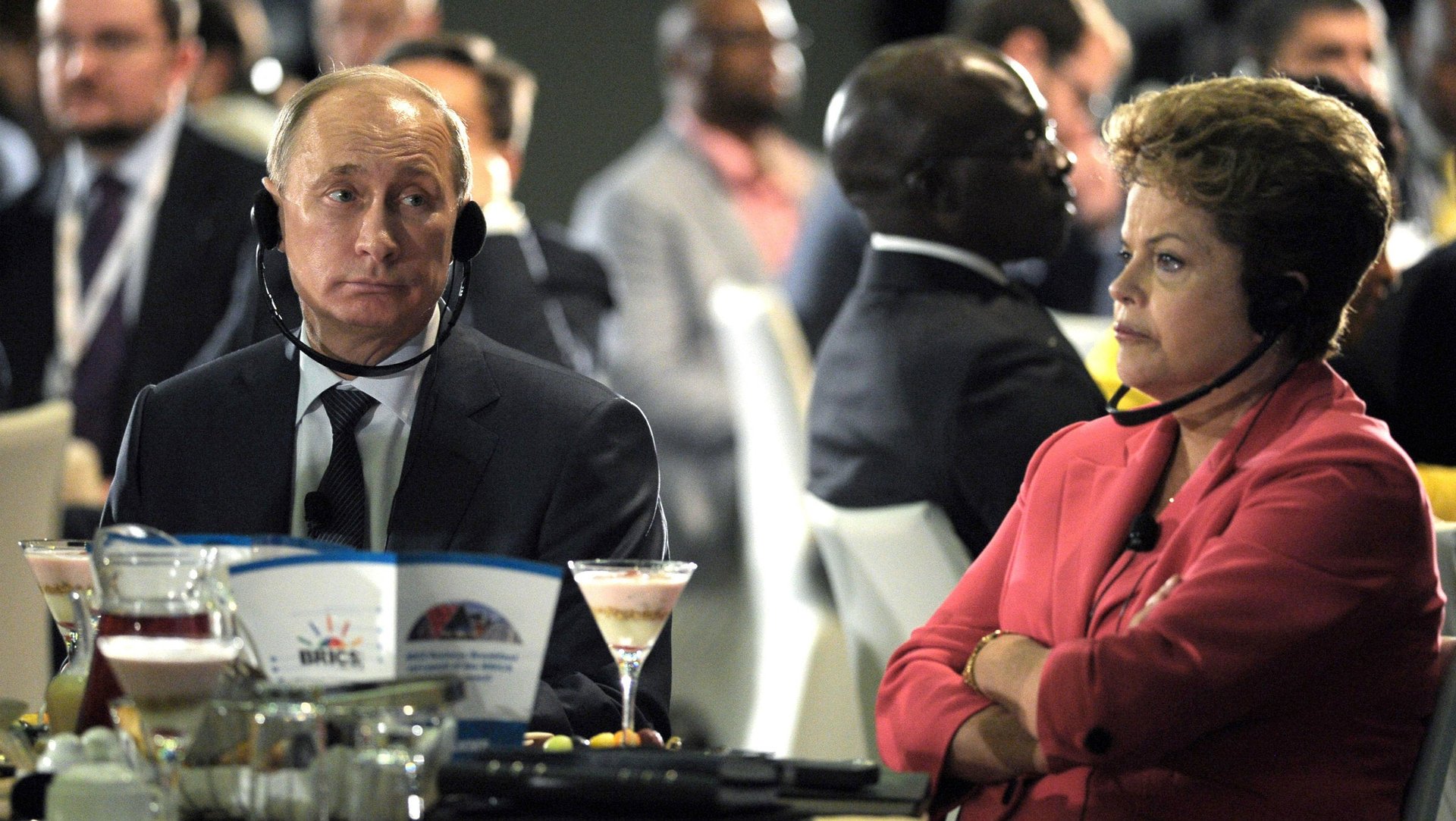All the things that still need to be decided about the new BRICS development bank
Brazil, Russia, India, China, and South Africa are expected to launch a brand-new development bank during a summit starting July 15 in the Brazilian city of Fortaleza that will provide at least $50 billion in funding for infrastructure in emerging markets, and—if it has the hoped-for effect— provide an alternative to Western and Japanese-dominated lending and the tyranny of the US dollar.


Brazil, Russia, India, China, and South Africa are expected to launch a brand-new development bank during a summit starting July 15 in the Brazilian city of Fortaleza that will provide at least $50 billion in funding for infrastructure in emerging markets, and—if it has the hoped-for effect— provide an alternative to Western and Japanese-dominated lending and the tyranny of the US dollar.
The bank will compete with (or compliment, depending on who you ask) the World Bank and the International Monetary Fund to provide long-term loans for projects expected to boost economic growth in emerging market nations. But a less than a week away from the bank’s official launch, there are plenty of basic questions that still need to be answered about how the bank will operate:
- Where the headquarters will be? China and India are fighting over this. Anton Siluanov, Russia’s finance minister, said July 9 that the headquarters would be in either Shanghai or New Delhi. The issue will be ulimately decided by the heads of the BRICS countries.
- Who will run it? Chairmanship will last for five years, and rotate among members, but who the first chairman will be is yet to be decided, Siluanov said.
- How big will it be? While each of the five member nations have committed to lending $10 billion, China is pushing to add another $50 billion of its own, which the other BRICS nations fear will give it outsized control. China’s extra amount will be “a $50 billion emergency reserve,” China Daily reported July 8, but officials from Russia, Brazil, and India have said publicly contributions will be equally divided.
Tensions are so high between China and India over the bank that the Hindustan Times has already dubbed it “the next China-India flashpoint.” China is “trying to grab control” of the bank, the paper said, in an article quoting Indian officials.
Nonetheless, optimism runs high ahead of the two-day Brazil meeting, which will be attended by heads of state from all five nations, and marks the first big foreign policy meeting for India’s new prime minister, Narendra Modi. “We are fully confident that we can reach consensus and establish the bank at this summit,” China’s vice foreign minister Li Baodong said this week.
If the leaders of the BRICS countries can actually do so, there’s plenty of demand for the bank’s services. Infrastructure needs in developing nations could be as much as $1 trillion a year, the head of the World Bank said this week, in a speech welcoming its new rival.